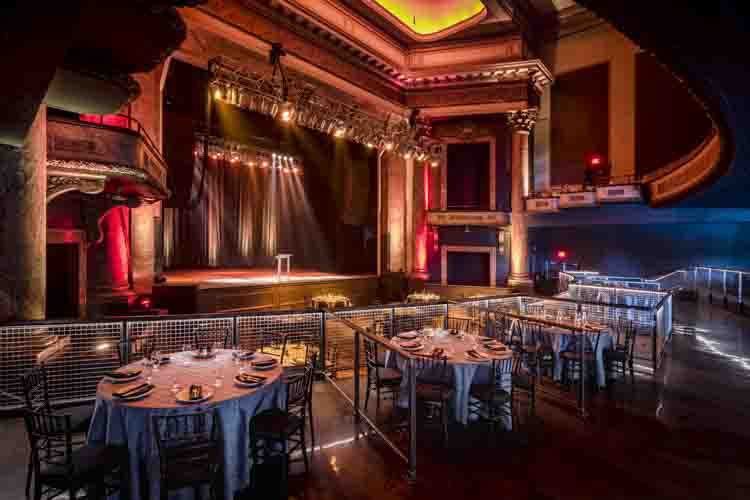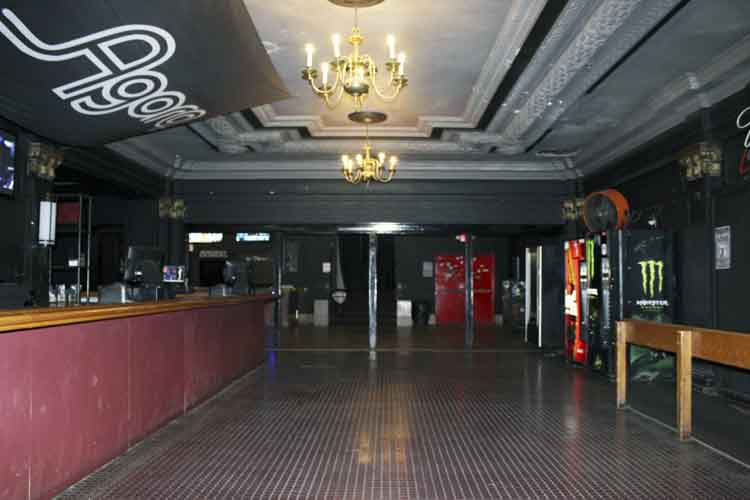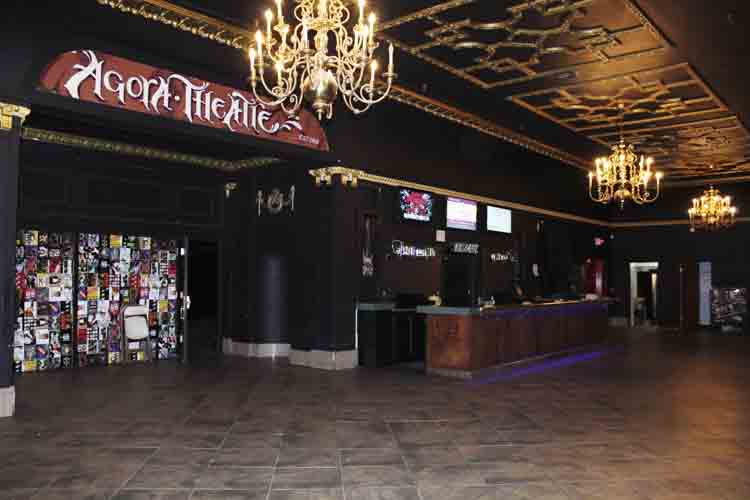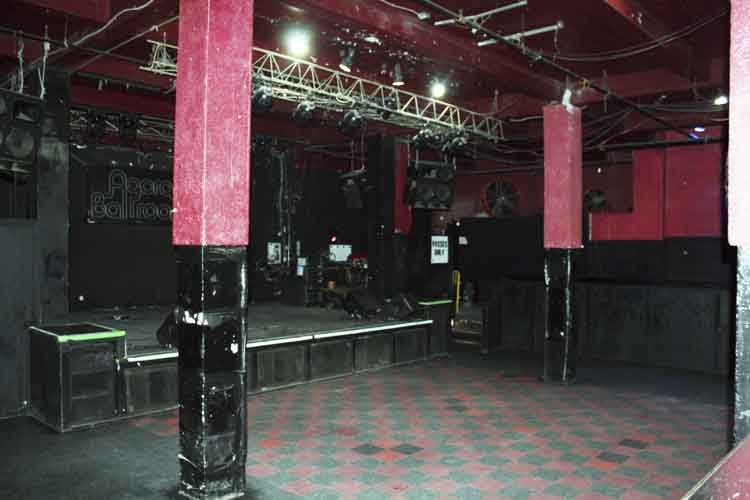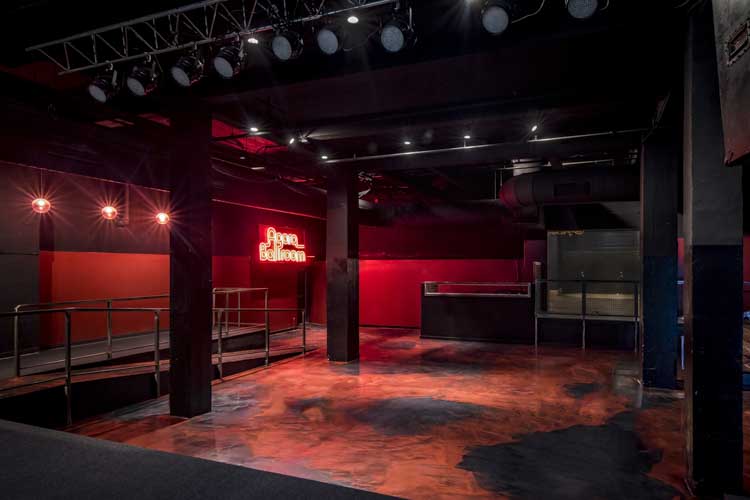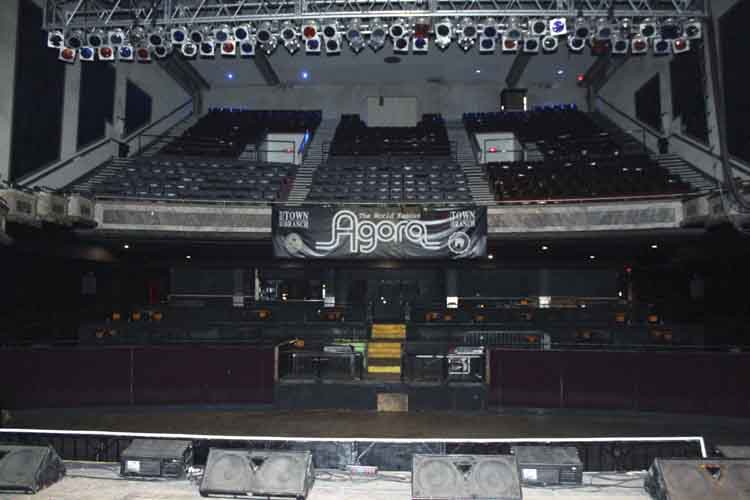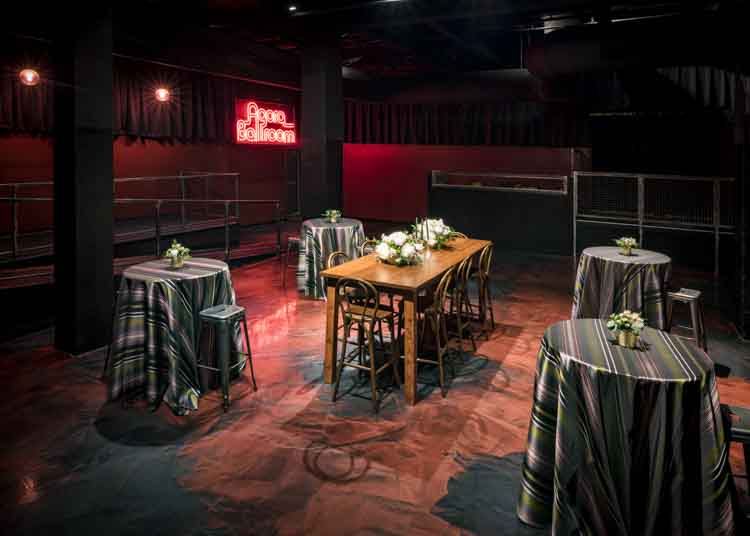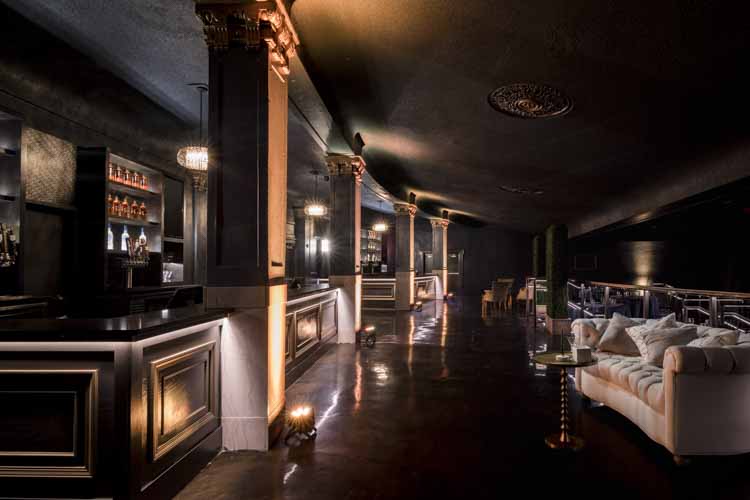A design lover's inside look at the newly renovated Agora Theatre & Ballroom
The newly renovated Agora is ready to rock. On Monday, July 23, the 1913 building complex at 5000 Euclid Ave.—best known since 1986 as the Agora Theatre and Ballroom—officially opens to the public. With more than $3 million in improvements and renovations made in the past year, Agora owner AEG Presents has brought the Cleveland Agora into the 21st Century while restoring the building to the original glory of the 1913 Metropolitan Theatre opera house, the emergence of pioneering rock-and-roll radio, and the debuts of countless rock performers.
“This room holds several decades of history, and we will have several decades more,” says Shawn Trell, COO and executive vice president of AEG Presents. “To build a theater like this from the ground up, you’re not going to [generate] revenue. When you have a building like this one—with the name, the history, the legacy—it just needed capital infusion. We saw it as a rare and exciting opportunity.”
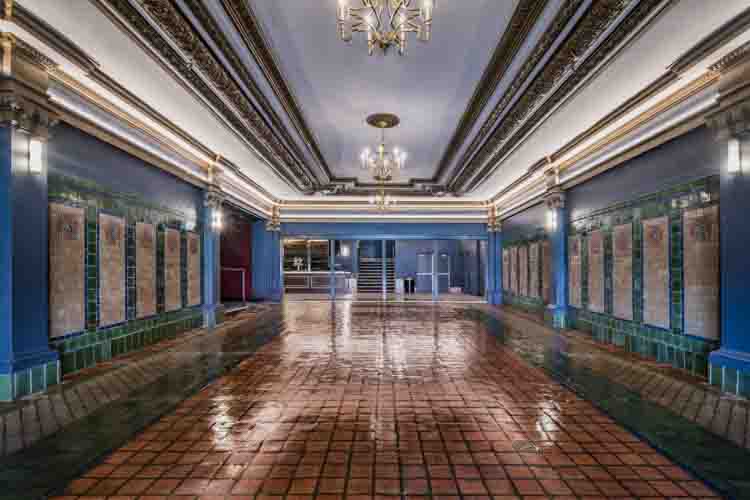 Trell says AEG had been eyeing the property for almost nine years but couldn’t make a deal. AEG was finally able to buy the Agora Theatre in 2017.
Trell says AEG had been eyeing the property for almost nine years but couldn’t make a deal. AEG was finally able to buy the Agora Theatre in 2017.
LDA Architects, which is actually housed in the Offices at the Historic Agora Theater (the five-building complex that includes the concert venue), oversaw the renovations and convinced AEG to pursue Federal Historic Tax Credits and a listing on the National Register of Historic Places.
“We were [initially] approached by the pavilion manager to do a mechanical, electrical, and plumbing upgrade,” explains LDA project manager Jesse Sweigart. “Aesthetically, we realized we could pursue the tax credit.”
The theater, designed by Cleveland architecture firm Fulton & Taylor, was completed in 1913 and had a varied entertainment history. Although the theater’s occupants have included the Metropolitan Theatre, a vaudeville theater, a musical comedy venue, and the New Hippodome Theatre silent movie theater, the Agora qualifies for the National Register for the period in the 1950s when radio station WHK took over the space to build a radio and production complex, says LDA historic preservation expert Michael Sanbury.
Radio station WMMS was housed in the complex from 1967 to 1975, and WHK remained until 1976, when it moved downtown. The fact that the facility was entirely radio-oriented during this period followed national trends of converting existing buildings into broadcast studios.
In 1986, Agora owner Hank LaConti purchased the complex after a fire ripped through the theatre’s previous location on E. 24th Street. LaConti is said to have helped jumpstart the careers of the likes of Bruce Springsteen, U2, Lou Reed, Patti Smith, The Clash, Duran Duran, and ZZ Top with their performances at the Agora.
LaConti eventually donated most of the complex to MidTown Cleveland. “But he kept the Agora to himself,” says Sanbury.
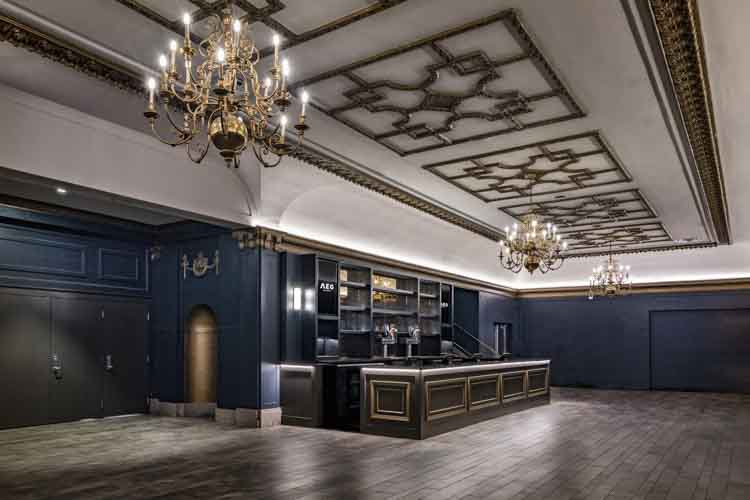 LDA’s restoration work began with the main lobby and the discovery of the original 1913 tile in the walls. “The main entry of the lobby was covered in black plywood,” says. “We pulled it back to see artisanal tile.” The yellow, blue, green, red, and tan tiles had been handcrafted by the famous Grueby Faience Company during the Arts and Crafts Movement in the late 1800s and early 1900s.
LDA’s restoration work began with the main lobby and the discovery of the original 1913 tile in the walls. “The main entry of the lobby was covered in black plywood,” says. “We pulled it back to see artisanal tile.” The yellow, blue, green, red, and tan tiles had been handcrafted by the famous Grueby Faience Company during the Arts and Crafts Movement in the late 1800s and early 1900s.
“The first thing you see when people walk in is the historic tile,” says Sanbury. “He won awards for his designs. It’s a pretty big name.”
The old flooring, which Sweigart calls “sticky,” has been replaced with a ceramic tile. “There are accents in it that give unique character,” he says.
Trell says he is thrilled with the new lobby that showcases these elements. “You go, ‘Wow, I can’t believe someone would cover that up,’” he says. “It’s amazing.”
In fact, Sweigart says the revealed Grueby Faience tile set the tone for the rest of the theater’s renovation. “The wall color complements the tile very well,” he says. “When we found the tile, [AEG] saw that this is what makes the theater different than everyone else.”
Elsewhere in the theater, the three bars have all been replaced—with the main bar enlarged with a granite countertop and a large back bar—and the two theater bars redone to accommodate audience members during performances.
“These were custom-designed and custom-built bars and shelving,” says Sweigart. “It was done at the last second, when we had a big push at the end.”
New plaster work was completed throughout the venue, new seats line the balcony, and the theater columns lining the room have been repaired and repainted with a faux marble finish. “A lot of the columns had been punched or drilled through,” explains Sanbury of the plaster columns. “There were holes and damaged spots.”
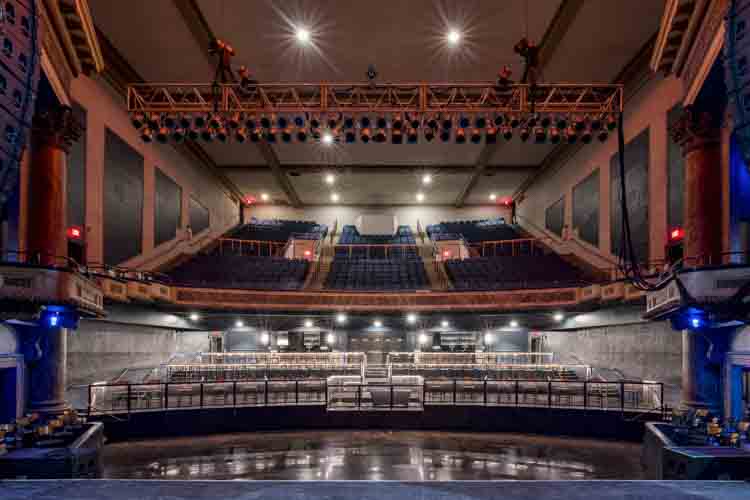 Additionally, the theater stage has been resurfaced, along with new lighting, sound system, equipment, and controls. New acoustic panels will provide a better performance experience for guests, and the restrooms have been modernized. Backstage areas and dressing rooms have been remodeled, although the walls touting the signatures of previous performers remains.
Additionally, the theater stage has been resurfaced, along with new lighting, sound system, equipment, and controls. New acoustic panels will provide a better performance experience for guests, and the restrooms have been modernized. Backstage areas and dressing rooms have been remodeled, although the walls touting the signatures of previous performers remains.
Trell says the rehab offers cleaner lines and better sight lines in the ballroom, and the area is also perfect for private events.
Despite the restoration, Trell points out the original mechanical, electrical, and plumbing work that LDA was first brought on for still had to be done. He cites extensive water damage caused by a bad roof as just one component that has been replaced with a new, high-efficiency reflective roof. “It’s now functional, from a 21st Century standpoint,” says Trell.
The heating system has been replaced and, for the first time in the building’s history, air conditioning has been installed—a welcome addition to the sometimes-steamy concert hall.
To show off the new Agora, a new marquee hangs outside the theater. “A lot of what we did was to make the building more efficient,” says Trell. “But also, a big chunk of it was aesthetic-based. We hit every floor. It had good bones, but now there’s a new skin on it.”
Starting Monday, the Agora will kick off its renaissance with five straight days of live concerts. The lineup includes Fleet Foxes on Monday, July 23; Ween on Tuesday, July 22; Create Your Summer Tour on Thursday, July 26; and Highly Suspect on Friday, July 27. Greta Van Fleet will play a sold-out show on Tuesday, July 31.


